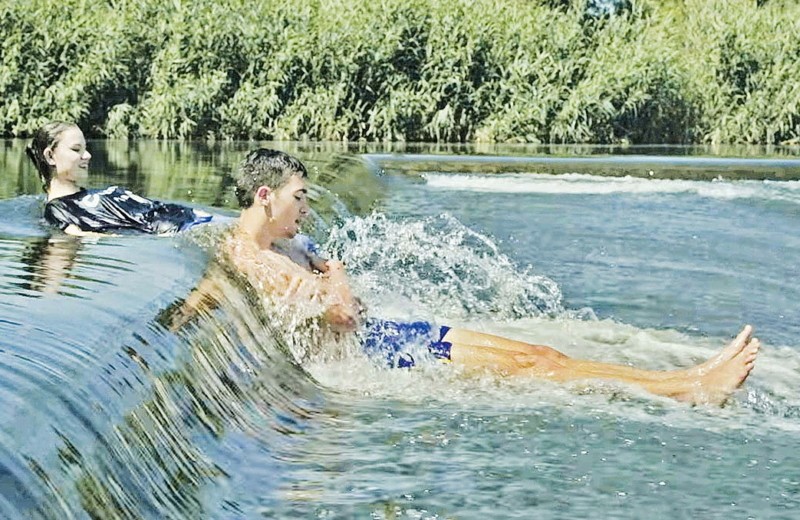“School No. 3,” a Ukrainian-German documentary that won an award at this year’s Berlinale Film Festival, doesn’t show any typical sign of war, like holes from shells, wounded people, or destroyed buildings.
But the war is invisibly present there like a monster in a good horror movie, which is unseen but terrifying by its existence somewhere near.
Mykolayivka, a city of 15,000 people in Donetsk Oblast some 640 kilometers from Kyiv, was severely shelled in early July 2014, when the Ukrainian army was storming the Russian-backed separatists, who dug in there.
Many houses were demolished and many residents were killed because of the fights. So when the city was eventually liberated, the locals felt hostile and suspicious towards Ukraine.
It took a while for a group of Ukrainian theater performers, who arrived in Mykolayivka several months after that, to build a dialogue with the children of a local School No. 3, which was also damaged by shelling.
But the efforts paid off.
At first, it was a documentary theater project “My Mykolayivka” that was staged in the city.
Later it was extended to a documentary film “School No. 3” by Ukrainian director Yelizaveta Smith and German director Georg Genoux, which made this city known all over the world.
The film received the Grand Prix in the Generation 14+ category at the 67th Berlinale Film Festival in March. The jury championed it for the special bond of sincerity which the movie crew managed to build with its protagonists.
The 13 teenagers, in turn, tell their most memorable stories, being filmed in some familiar environments like a school gym, a classroom or a local park.
They speak about a motorbike, a dog, a former girlfriend, an arms shelling, love, loss, a drug experience, plans for the future, sharing the very intimate details of their childhood memories and current fears.
One girl remembers when her mother called her a “daughter” instead of a usual calling by name at the moment when their house was under the shelling. She dreams her mother never calls her this way again. She also dreams to once bring to Paris her father, a big fan of this city, who has collected dozens of the small Eiffel towers.
One boy sits on a bench next to a grim-faced stuffed toy monkey, his favorite childhood toy, and says how a string of the unlucky love affairs brought him on the way to drugs and alcohol.
The teenagers also drive a motorbike, swim in a river, walk up a hill or picnic with a view to the industrial city.
They also interact with each other, joking, laughing and arguing, without paying attention to the camera and so honestly that the film sometimes looks like a reality show.
These stories, told in a seemingly simple entourage, grasp with the emotions for two hours of the film and then retain a lasting impression for long after it finishes.
“School No. 3” will be screened in Kyiv cinemas starting Oct. 26 in Russian with English subtitles. It will also be screened on Oct. 14 in Kyiv Cinema at 7 p.m. in terms of the New German Cinema festival. Follow the Kyiv Post Lifestyle calendar for updates and further time of the screenings.



